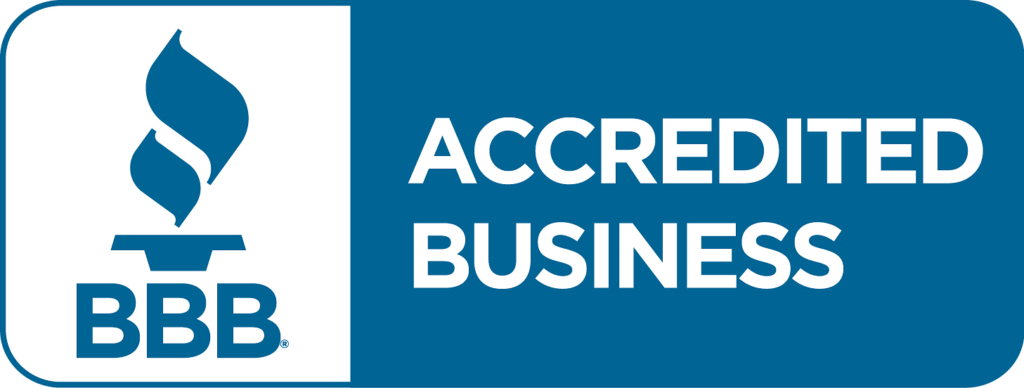At Affordable Patent Agency, we understand the critical role intellectual property plays in the success of startups. As startup inventors strive to bring their innovative ideas to life, we are committed to providing accessible and reliable patent services tailored to their unique needs. Our team of dedicated patent practitioners is equipped with the expertise to guide startup inventors through the intricacies of patent law, ensuring their ideas are protected and their innovations can thrive in the competitive market landscape. With the Affordable Patent Agency by your side, startup inventors can confidently navigate the journey from idea to intellectual property protection, empowering them to focus on what they do best – innovation.
Don't Let Your Innovations Go Unprotected Call the Affordable Patent Agency, LLC
Table of Contents
ToggleEssential Considerations of a Patent Attorney for Startups
While startups have significant strengths and opportunities, they may also have many weaknesses. For example, their inventions could disrupt established industries and create new markets. The key for startups is to identify and capitalize on their innovative strengths and protect their intellectual property and startup patents. By understanding your startup’s creative strengths, market analysis, and external opportunities while mitigating weaknesses and threats, you’ll be better positioned to make informed decisions about your business. This blog will teach you how to determine your strengths and overcome weaknesses. This knowledge will help you identify risks and take advantage of opportunities, ensuring that your startup is on the path to success.
In the first part of this blog, you will learn whether your invention can succeed commercially and how to protect it through a utility patent.
Market Analysis Prior to Patent Filing
Any new business venture should always create something that will fill a market need and make your customers happy. You must also establish and ensure this is the right path. To do this successfully, an inventor must consider the following:

- When starting a business, it’s essential to understand your product’s market size and needs. At the onset, determine the market size and need for your product. In addition, you should know if your product is a consumer product and, if it is, who your potential buyers are and how you will reach them. Answering these questions can be essential in determining the viability of your business. If there’s not enough demand for your product, you may not be able to generate enough sales to make a profit.
- It is essential to formulate the problem that your product or service solves. However, it is also vital to consider whether others have tried to solve the same problem before. If so, what approaches did they take? Were those approaches successful? But it’s not enough to solve a problem – you need to solve it better than others have tried. Otherwise, why would anyone choose to use your product? Understanding how others have tackled the problem can help you refine your solution and improve your chances of success. Only then can you develop a truly effective solution.
- Moreover, a patent attorney will tell you that improvements are patentable, especially if others tried unsuccessfully to solve the problem, but you succeeded. Such improvements offer an easier path to obtaining a patent.
- When starting a new business, it’s best to have a clear plan for penetrating the market and attracting customers. This plan should consider the competition and what makes your product or service unique and better. It’s also important to consider how you will reach potential customers and what marketing channels you will use. Competing against established businesses with larger budgets and more name recognition can be challenging for a startup. However, you can also offer something unique that other companies don’t have, such as new, better, and distinctive enough so people would buy from you instead, preferably at a lower price point.

- Inventors must consider how they will manufacture their products. Initially, your manufacturing needs may be small, but you may need more considerable qualities later. Therefore, it is crucial to consider the product scalable at the onset. Finally, how are you going to sell the product?
- Next, one of the most important aspects is your financial goals. How much do you need to make to break even? Are your products or services priced correctly to make a profit? What are your long-term financial goals for the business? These are all critical questions to answer before starting your business, as they will help guide your decision-making process. Then, knowing the answers to these questions will assist you in knowing whether or not your financial goals are feasible. Be realistic in your goals and give yourself room to grow. Include the cost of patent drafting, filing, and prosecution in your cost analysis.
- Starting a business is an exciting and challenging undertaking. One of the first questions you’ll need to answer is whether or not you’ll need to raise money. If so, you’ll need to determine how much money you’ll need to raise, from whom you’ll raise it, and how you’ll do so. You’ll also need to decide how much equity you will give up in exchange for funding. Raising money for your startup can be complex, but ensuring your business has the resources to succeed is essential.
- Starting a business is a lot of work. You’ll need to wear many hats, from accountant to salesperson to janitor. But at some point, you’ll need to start delegating tasks so you can focus on the areas where you excel. That’s where building a team comes in. The first step is to identify the skills you need on your team. Once you’ve identified the skills required, you must decide whether to hire employees or partners. Employees will require a salary, while partners will usually be compensated through equity in the company. Whichever route you choose, ensure you are clear about the expectations and compensation for each team member. Building a solid team is essential for any successful startup.

Protect Your Invention and Intellectual Property While You Build Your Team
After deciding on your product’s marketability, you must select a team. Besides aligning skill needs, you must also align brand and motivational needs. Therefore, consider your purpose, passion, and story; ensure these match your team members. While determining each team member’s role, you must consider who owns what. This clarity is most important and as easy as possible during your company’s development.
At this stage, it is crucial to understand that trade secrets remain valuable only as long as they are secrets. Although trade secret protection costs almost nothing to maintain and prevents unauthorized access by ensuring only those who “need to know,” have access, it is often cheaper for others to steal them. The last thing you want is to develop a product only to find that one of your associates stole your technology and idea. Still, you can protect your trade secrets through Non-Disclosure Agreements (NDA) that limit the amount of information available for viewing or distribution within your business enterprise. Ensuring that you or your company owns the intellectual property is essential. Thus, it is best to protect all your intellectual properties through several legal methods, including patents, trademarks, NDAs, etc.
Protect Your Invention and Intellectual Property by Avoiding Public Disclosure
The clock starts running once the inventor has “publicly disclosed” your invention. This clock means you should consider how quickly your company can file a patent application with the United States Patent and Trademark Office (USPTO) before taking other actions that might lead to public disclosure. USPTO considers any disclosure available to the public, including trade shows, demos to potential investors, press releases, any paper or online publications, etc. Even if the public disclosure is by another person with whom you discussed your idea, it could harm your patent rights.
Therefore, if you think your invention is patentable, avoid publicly disclosing it before talking to a patent attorney and filing an application. A public disclosure (telling people about the idea in sufficient detail so they could use it) that predates this can harm your ability to get a patent and protect your invention from being stolen.
Patent Subject Matter Analysis
Identify patentable aspects of your invention. Protect your future hard work by making a comprehensive list of your ideas, inventions, or new product concepts (or improvements) that you think could be valuable to others. Then, file for patents before someone else does. Your patent attorney will help you find what aspects of your invention can be patented and will process. It is vital to consider the cost of not filing patents.
Ensure nothing similar to your invention exists as a patented or non-patented product. If such an invention exists, patent protection could be blocked by the USPTO. Contact us to know what aspects of your innovation are patentable. Furthermore, we can assist you in filing provisional or non-provisional affordable patent applications, whichever best matches your business and patent goal. Finally, we can help you prepare an intellectual property patent strategic portfolio at an affordable patent budget.
Frequently Asked Questions
Why Do Startups Need a Patent Attorney?
Startups need a patent attorney’s expertise to navigate the complex landscape of intellectual property law. These attorneys assist in identifying patentable inventions, drafting patent applications, and navigating the patent filing process to secure protection for the startup’s innovations.
What Services Can a Patent Attorney Provide to Startups?
Patent attorneys offer a range of services tailored to startups’ needs. These include conducting patent searches to assess an invention’s novelty, drafting patent applications to protect intellectual property, providing legal advice on patent strategy and enforcement, and representing startups in patent disputes or negotiations.
How Can a Patent Attorney Help Startups Maximize the Value of Their Intellectual Property?
Patent attorneys help startups maximize the value of their intellectual property assets by strategically drafting and prosecuting patent applications. They can help startups secure strong patent protection for their innovations. Additionally, patent attorneys advise startups on licensing opportunities, portfolio management, and enforcement strategies to enhance the value of their intellectual property assets and support their long-term growth and success.
Unlock the Power of Innovation with
Affordable Patent Agency
At Affordable Patent Agency; we recognize that startups are the engines of innovation driven by bold ideas and boundless creativity. Our mission is to empower startup ventures by providing comprehensive patent services that unlock the full potential of their innovations.
By partnering with the Affordable Patent Agency, startups gain access to a wealth of expertise and support tailored to their unique needs. We are skilled at navigating the intricate nuances of intellectual property law, guiding startups through every stage of the patent process with precision and insight.
Affordable Patent Agency, LLC
4131 N. Central Expressway Suite 900, Dallas, TX 75204
(855) 444-1946
*Note: Throughout this blog, the terms “patent practitioner,” “patent agent,” and “patent attorney” are used interchangeably to refer to individuals authorized to practice before the United States Patent and Trademark Office (USPTO).




